For our next category we are going to cover Electronic music. Now, as shown in the new wave/synth-pop category, I did not include artists of the synth-pop genre with the electronic category, even though the music they played was generally electronic music as well. However, I don’t quite consider both to be the same as synth-pop is much more influenced by pop music and new wave and rock. Pure electronica, as highlighted by the artists we’ll discuss in this section, is a much more sophisticated and diverse style of music. Electronica music, to me, is the modern-day jazz and classical music. Highly sophisticated works of art highlighted by improvisation, extremely long songs, mostly instrumental where words cannot express the moods and emotions behind a song in a literal sense, and mixtures of styles and sound. This genre will include only 10 artists, with the majority all being 90’s artists (the peak of the genre in my view), but with two majorly important pioneers to kick things off. So, let’s get to it. Here’s how the Hall should approach the genre of Electronic music over the next 15 years to get more representation.
2020/21/22
Kraftwerk:
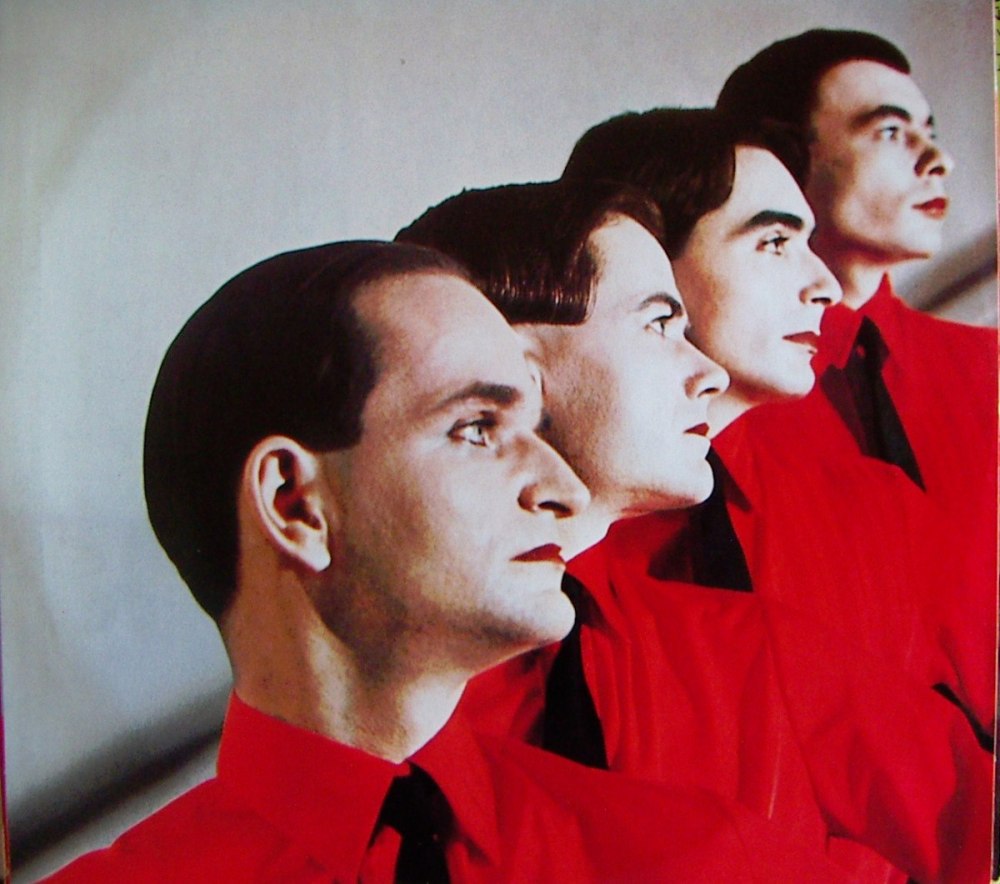
The unique thing about this genre is that unlike all the genres, there is literally not a single artist of this genre presently inducted into the Rock and Roll Hall of Fame. Sure, there are artists that have experimented with electronic instruments presently inducted in the HOF, but no acts that are categorized as pure electronic music acts have been inducted. So, for this genre we can start from scratch. For the first 3-year period, the Hall should focus on, IMO, the two most important pioneers of the genre, the first one of course being Kraftwerk. Now in this case, the Hall and I are on the same page as the Hall has repeatedly tried to get Kraftwerk inducted into the Hall throughout the decade, but to no avail. Kraftwerk has been nominated 4 times during the 2010’s decade, so the Hall is well aware of how important it is to get Kraftwerk inducted to get the genre going. And honestly, for credibility sakes, it has to be this way. No electronic group should get inducted before Kraftwerk. As they are the “Grandfathers of Electronic music.” So, with my recommendations, obviously the Hall should stick down the path they’re going and keep pushing for Kraftwerk, like they’ve been in real life.
Giorgio Moroder:
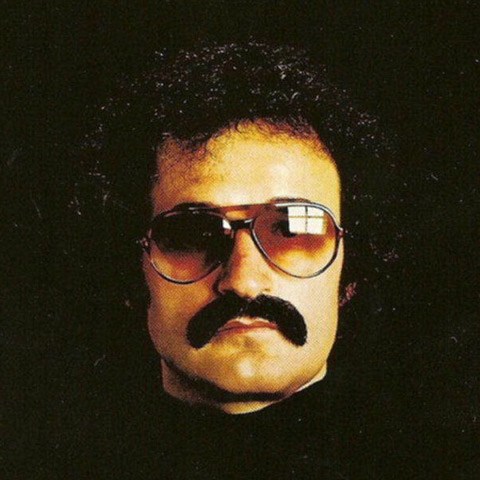
Once Kraftwerk gets inducted, the other major pioneer that should be inducted is Giorgio Moroder. Giorgio is best known for his production work with Donna Summer as well as his disco and proto-techno soundtracks and scores for a number of Hollywood movies throughout the late 1970’s and early 1980’s (Midnight Express, American Gigolo, The Neverending Story, Scarface, etc.). But Giorgio wasn’t just a producer/studio wizard. He was a performer as well, releasing his own official albums, and thus to me that makes him qualify for the Performers category, though he could just as easily be inducted as a Non-Performer, or the Musical Excellence if the Hall isn’t sure exactly where to put him. In my eyes, he belongs in the Performers category. No matter which category you feel he’s better suited for, no one can deny how important he is to electronic music, and thus modern popular music and he clearly is a worthy candidate for the Rock and Roll Hall of Fame. Once Kraftwerk is in, the Hall should focus on Giorgio Moroder.
2023/24/25
Daft Punk:
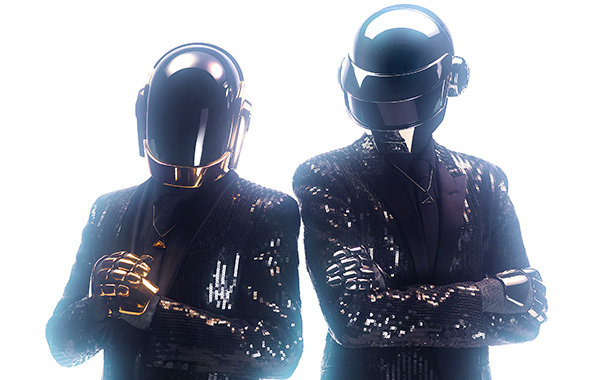
Daft Punk is officially eligible this year for the first time and thus could appear on the ballot as they’re eligible. That would be a mistake in my view, however, as I don’t think they should be inducted before Kraftwerk or Giorgio Moroder. There are other pioneering groups (Tangerine Dream, Silver Apples, Wendy Carlos, Vangelis, etc) of electronic music, but I don’t think any of those acts are at the level of Kraftwerk or Giorgio Moroder. So, I am comfortable with the Hall bypassing those acts so they can start getting the major electronic groups of the 90’s and beyond inducted. There are even peers of Daft Punk that pre-dated them that you could also argue should go in first (more on them shortly). However, Daft Punk of all the 90’s electronic groups proved to be the most enduring and popular and have their imprints on modern popular music more than anyone (auto-tune anyone?). Even though it is important to get major pioneers inducted, preferably first, you can’t also just completely ignore the big name acts of a genre to make way for every pioneer in existence, so I think once you get Kraftwerk and Giorgio in, it’s time for the Hall to move to the 90’s, and to do that you have to start with Daft Punk.
Moby:
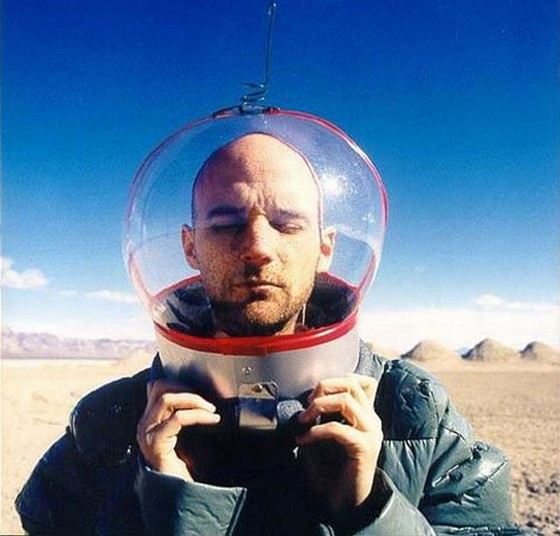
The next electronic artist that should go in is Moby, who in a way, was the most successful electronic act of the 90’s from a commercial standpoint. His 1999 album, Play, was a major breakthrough for the genre as its singles were everywhere on MTV, the radio, and tv (through commercials) between 1999-2001, and thus Moby broke through and became the most unlikely rock star since Phil Collins in the mid 80’s. But before that, Moby was one of electronic music’s greatest innovators, as he was an artist that could perform any type of electronic music. Dance and club music. Check. Moody ambient music? Check. Techno? Check. Heavy rock and guitar-infused electro? Check. Music that sounds like it was created in Heaven or the ocean? (“My Weakness” and “First Cool Hive” for example) Check. Few artists in the genre made music that brought out so many emotions and feelings to the listener as Moby did. Moby was also arguably the most prolific of all the major electronic stars during the decade as he released numerous singles, remix albums, 5 official studio albums, as well as a vast amount of soundtrack and score work. Moby was one of the earliest artists to take advantage of film, tv shows, and commercials in getting his music to the masses, and thus he helped bring electronic music to mass forms of media beyond music, in the process helping pave the way for the genre to become accepted in mainstream culture more than any other electronic artist of the time. For his importance in establishing electronic music in mainstream culture, his run of amazing work, and his general popularity, he has to be considered one of the elite electronic music acts of all-time, and a must-have inductee for the Rock and Roll Hall of Fame. His music is not quite as enduring and influential on modern music as Daft Punk. Thus, Daft Punk should be first, but right after them, Moby should be the next artist the HOF goes for.
2026/27/28
Bjork:
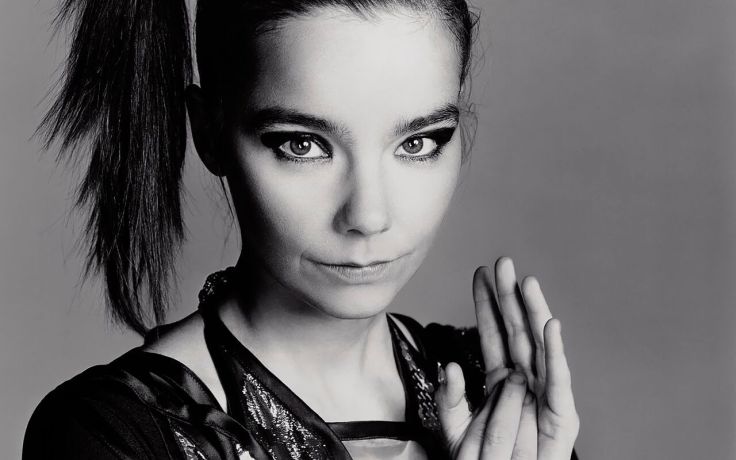
The lone female artist on this list, Bjork is a true musical original and one of the most unique artists in all of music. Seriously, there is absolutely no one like her. The fact that she enjoyed commercial success during the 1990’s shows how great that decade was when it came to embracing unique artists and taking a chance on them (in all mediums not just music). Those days are long gone unfortunately. But that’s another rant for another time. Even though many in the Rock Hall community have been saying she should’ve been inducted almost a decade ago because she actually released her first recordings in the late 70’s as a child musician, I’m sorry I just can’t go along with that thinking. She was as obscure as it gets in the late 70’s outside of her native Iceland. It’s her work in the 90’s that she will be best remembered for. But we’ve gotten to the point where 90’s artists should be looked at by the Hall, so the time is right for Bjork to get her due. I think once Daft Punk and Moby goes into the Hall (go for a couple of mainstream acts with mass appeal first), Bjork is the next logical choice. My one worry is that she will set the genre back, because she is such a unique artist, that many will not vote for her and thus put a logjam on the genre. But the Hall can play around with that if need be and try others. But for this exercise, let’s go with Bjork as the next artist for the Hall to try to induct after Daft Punk and Moby.
Aphex Twin:
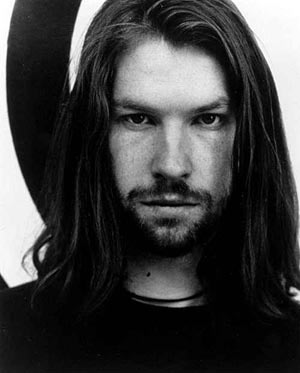
Now we start getting to the major innovators of the genre during the 1990’s. There’s probably no act in 90’s electronica that was more groundbreaking and innovative than Richard D. James, better known as Aphex Twin. Aphex Twin could be considered the defining artist for the electronic sub-genre known as IDM (Intelligent Dance Music), as their music was initially not geared to club and dance music and was instead much more cerebral and intricate in its creation. But Aphex Twin didn’t just do one style of electronic music. Like Moby, James was a master of all styles, creating some of the most beautiful ambient electronic music ever made, and even had arguably his biggest hit in the U.S. simply by creating a parody of death metal music (“Come to Daddy”). Moby’s music was much more accessible and mainstream. Aphex Twin’s was much more challenging and adventurous and edgy. When it comes to innovating in the genre, there’s probably no one bigger than Aphex Twin. Thus, he is an artist the Hall must look at down the road, particularly around this time in our pretend timeline of things.
2029/30/31
The Chemical Brothers:
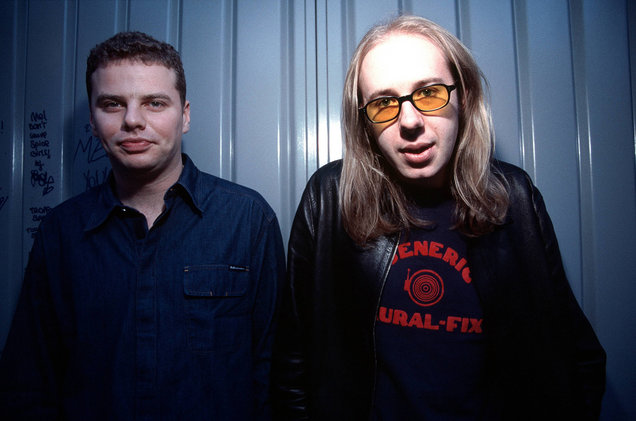
Now we get to two acts that defined the electronic style known as “Big Beat.” I liken this genre to being the “Heavy Metal” of electronic music. The genre is defined by its use of heavy “breakbeats,” loud and distorted production, and heavy use of synthesized loops and patterns. The style is very much like punk rock or heavy metal in its intensity. And the first act to represent this genre is the Chemical Brothers. The Chemical Brothers released their first recording (album and single) in 1995 and they quickly became one of the defining groups of the genre and by the late 90’s had become one of the absolute most popular and well-known groups in all of electronic music. Their debut album, Exit Planet Dust, released in 1995, and their follow up album, 1997’s Dig Your Own Hole are two of the greatest electronic albums ever conceived and serve as absolute hallmarks of the big beat sub-genre and the overall popularity of electronic music during the late 90’s. Their run didn’t end there though, as they continued to have hit songs into the 2000’s and 2010’s and they’ve become one of the most enduring and prolific groups in all of electronic music as they continue to release acclaimed albums to this day. After inducting two major pioneers, two of the biggest mainstream electronic acts, and two of it’s most unique and innovative artists, it would make sense for the Hall to next embrace electronic acts that are most closely linked with actual rock music.
The Prodigy:
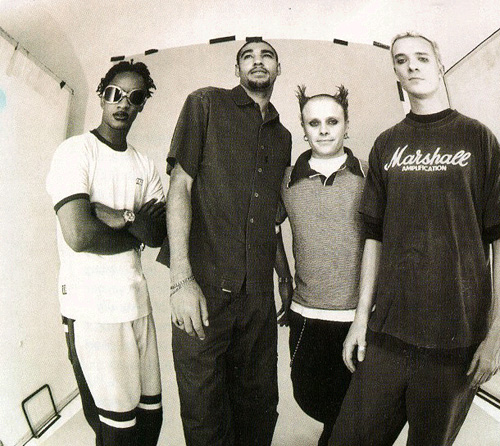
And now we get to the second act to represent the “Big Beat” sub-genre. Much like the Chemical Brothers, the Prodigy debuted in the early 90’s, and enjoyed major mainstream success in the late 90’s. Their 1997 album, The Fat of the Land, was a watershed moment for electronic music, as it became the first album by an electronic music group to hit No. 1 on the Billboard Top 200 Albums chart (to the best of my knowledge). Their music was intense and catchy, and with their charismatic frontman, Keith Flint, in tow, the group helped bring a punk rock image to electronic music, helping to bridge the two musical worlds in the process. The Prodigy’s peak popularity was not as long lasting and enduring as the Chemical Brothers, however, though the Prodigy’s mass popularity at their peak was bigger I’d say. Overall, I feel the Chemical Brothers are the greater group, so I think it would be best for the Hall to focus on them first. However, the Hall should definitely attempt to induct the Prodigy afterwards. Both groups are two of the most important in the genre’s history and both serve as leading examples of the genre’s mass popularity and appeal.
2032/33/34
Underworld:
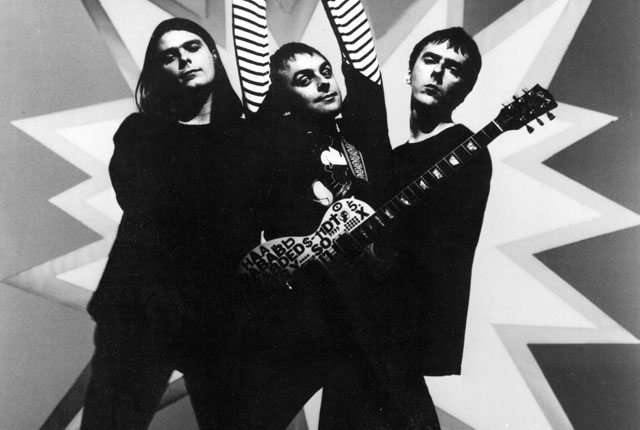
And now we will round out the category with two groups that admittedly did not have quite the level of mass popularity of Daft Punk, the Chemical Brothers, Moby, and the Prodigy, nor the level of critical acclaim of Aphex Twin and Bjork, but were still two of the very best acts in the history of electronic music. The first group to round out the category will be Underworld. The group started out as a standard synth-pop group in the late 1980’s before evolving into one of the defining bands of techno and house music throughout the 1990’s. The group crafted one of the defining songs of 90’s electronic music, “Born Slippy. NUXX” most famously used in the 1996 film Trainspotting, in addition to classic albums like 1994’s dubnobasswithmyheadman and 1996’s Second Toughest in the Infants. The band has recorded tons of music over the decades that has been used in films and television. Underworld is not an instantly recognizable group, but almost everyone has likely heard their music at some point in time, whether they realized it or not. Underworld is one of the most important bands in electronic music history, and they absolutely deserve a spot in the Rock and Roll Hall of Fame to represent electronic music as a whole.
Orbital:
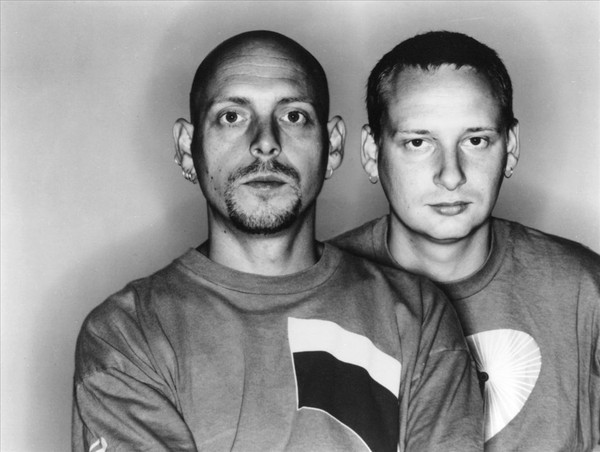
Our final group to represent electronic music is a group whose stature in electronic music history is very similar to Underworld. Orbital is another group that didn’t ever quite break through to the mainstream. However, much like Underworld, their music is all over pop culture thanks to its inclusion in many movies and tv shows. Earlier in this entry I referred to electronic music being the closest modern-day music has come to the level of jazz and classical music in sophistication and level of pure musical genius. When making that statement, Orbital is the band I had in mind. Orbital is very well known for their improvisation in it’s live shows and performing, much like how jazz music is created. In addition, few artists evoke specific moods, thoughts, and themes in their all instrumental music like what Orbital does. Had Orbital existed in the days of jazz and classical music, they would be in the same category with the Mozarts, Bachs, Davis’s, and Coltrane’s of their day. Orbital is one of the only electronic groups whose music was inspired by political ideas and themes, and they often crafted their music to represent these ideas and themes. There might not be a more creative and artistically inspired group in electronic music than Orbital. Orbital absolutely deserves a place in the Rock and Roll Hall of Fame as a representative of electronic music.
So, in short here is the breakdown of the path the Rock Hall should go down to get more electronic music artists inducted over the next 15 years:
2020/21/22: Kraftwerk/Giorgio Moroder
2023/24/25: Daft Punk/Moby
2026/27/28: Bjork/Aphex Twin
2029/30/31: The Chemical Brothers/The Prodigy
2032/33/34: Underworld/Orbital
Now here’s a list of other artists I considered for this category but didn’t make the final cut.
Currently Eligible Artists: Brian Eno, Derrick May, Jean Michel Jarre, Juan Atkins, Leftfield, Massive Attack, Tangerine Dream, The Art of Noise, The KLF, The Orb
Future Eligible Artists: Air (2021 class); Boards of Canada (2021 class); Basement Jaxx (2022 class); Fatboy Slim (2022 class); Deadmau5 (2031 class)
A special note on Brian Eno, who is undoubtedly one of the most important musicians in the history of electronic music. Brian was inducted with Roxy Music for the 2019 class, and that is ultimately why I did not include him in this section. His solo work on his own is of course worthy of induction, but I wanted to use this section to focus on the major electronic acts of the 90’s as well as Kraftwerk and Giorgio Morodor who have zero recognition from the Hall at this point. If Roxy Music had not been inducted by now, then I likely would’ve included Brian Eno.
With that, thanks for reading and be sure to let me know your thoughts on the electronic music genre and what acts should be inducted by the Hall of Fame in the future!

Great work…and very helpful on a genre I am simply not very familiar with.
LikeLike